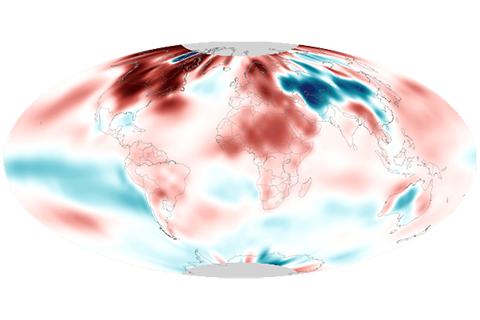
Despite the influence of La Niña, December 2020 was the eighth-hottest December on record helping 2020 become the second-hottest year on record.
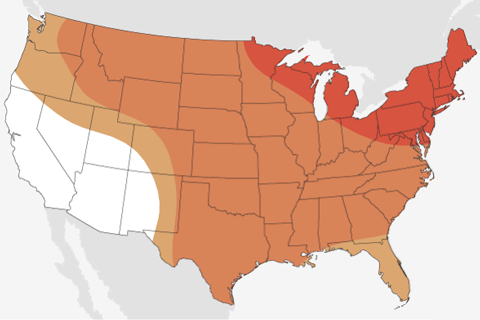
January 2021 is favored to be wetter and warmer than average for much of the country.
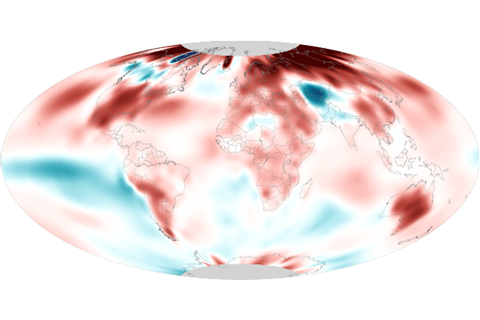
November 2020 was the second-warmest November on record, which increases 2020's chance of becoming the warmest year on record to over 50%.
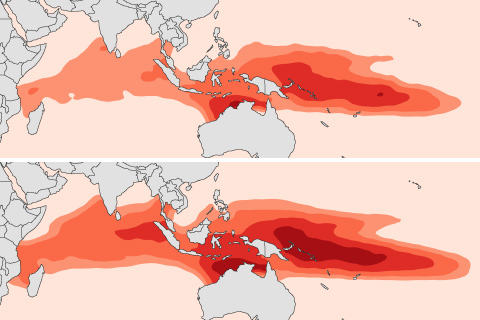
The large, warm pool of ocean water in the Indian and west Pacific Oceans has been growing warmer and expanding in size since 1900, impacting the Madden Julian Oscillation and regional rainfall.
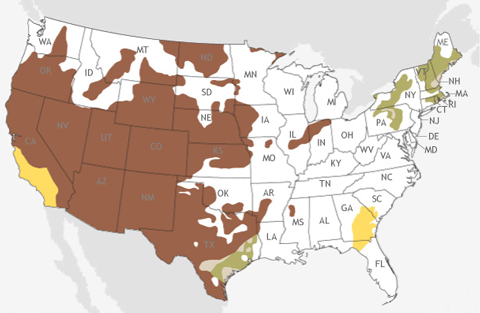
December 2020 and the start of the 2020-2021 winter looks warmer and drier than average for much of the country.
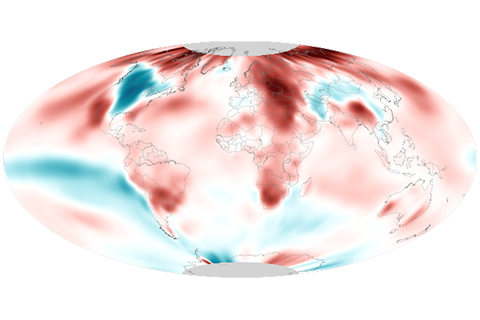
October 2020 was the fourth warmest October on record dating back to 1880, which makes it the lowest-ranked month so far in 2020.
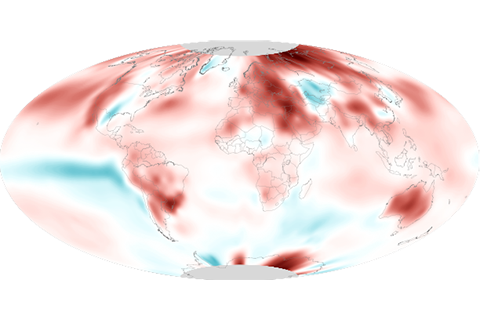
September 2020 was the hottest September on record for the globe, continuing a sweltering year.
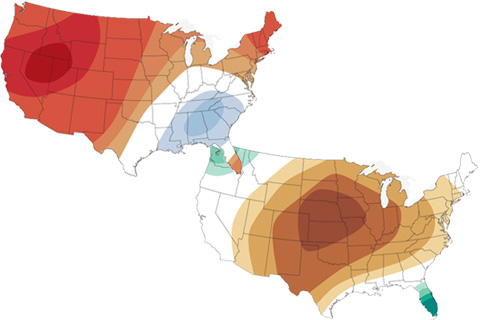
The latest maps from NOAA's Climate Prediction Center show where October 2020 is forecast to be much hotter and drier than average in the U.S. It's not a great outlook for the wildfire-affected West.
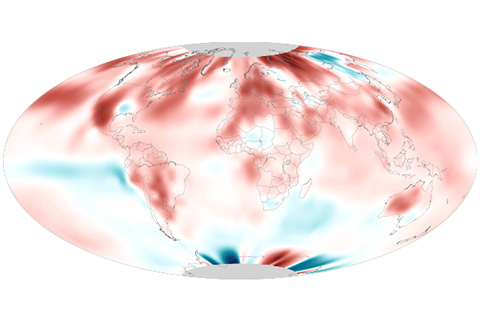
August 2020 was the second-hottest August on record, and it ended the hottest summer on record for the Northern Hemisphere.
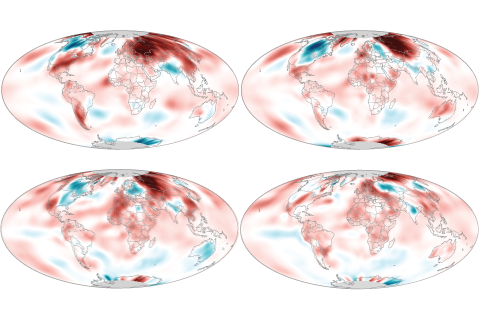
June 2020 broke the streak of each month being warmest or second warmest on record by being only the third-warmest June on record.